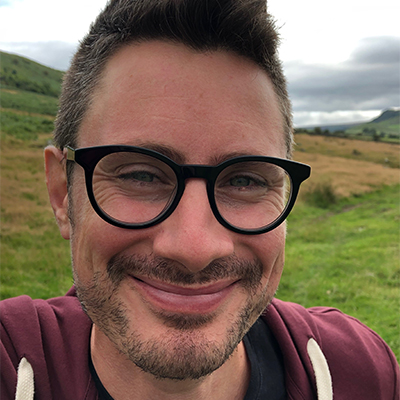Jules Howard campaigns for schools to encourage children to get closer to nature.
So, in May 2012 the term ‘Nature Deficit Disorder’ went public, thanks to excellent media coverage of the National Trust’s new report Natural Childhood.
The report, written by ex BBC producer and author Stephen Moss on behalf of the Trust, outlines a number of things, but mainly it asks us to take our children’s increasing dissociation from nature seriously, and asks us to think carefully, as a society, about where we might look for solutions.
Well, assuming we are behind the National Trust, and I suspect most people in wildlife conservation have their anecdotes about the issue, what do we do next? How do we modify an entire younger generation to help them get that bit closer to nature?
A complex beast
This is where it all gets a bit difficult and, well, murky. Yes, kids do appear to be spending less time in nature, and perhaps they are less likely to climb a tree than they used to be, but there’s a myriad of reasons behind this; there’s more for children to do at home, there’s growing parental insecurities and fear, there’s the risk and there are fewer natural places for young people to explore.
Society is a complex beast. Influencing these factors will take time – maybe a generation.
For me, there is one place that we can influence more quickly; one place where parental insecurities die back and where accessible nature could still take root. I’m talking, of course, about schools. This is where I’d direct my magic wand if I had the chance.
What would I change about schools?
Well, perhaps I’d make field-trips compulsory, or say that 1 in 10 lessons must take place outdoors, or enhance funding for schools to become more eco-friendly.
Or better still I’d lean on Ofsted to make nature a more prominent criterion for their assessments. That’d make the Governors sit up and listen.
Changing focus
Ok, I know this might be a tad unrealistic. I may look stupid in the portrait picture below, but I’m wise enough to know that influencing the education sector is difficult work. Our lonely puny voices probably won’t cut it.
Thankfully there are organisations doing good work on our behalf to lean on the government departments who direct such things – notably The Field Studies Council, The Council for Learning Outside of the Classroom, Learning Through Landscapes and The RSPB and the National Trust.
In my wildest dreams I’d love to see us go further though. I’d love to see schools change their focus entirely, concentrating wholly on raising young humans with an understanding of their animal roots and the rules of life.
Instead of learning about kings and queens, I’d like to see them learning about Lucy and why we walk on two feet. Less paper plates, more agar plates. I want to see The Tragedy of the Commons, played out by puppets.
But most of all, I want to see children regain a sense of place.
When I visit schools I’m often struck by how many rainforest displays are tacked to the walls. Why are we teaching our kids second-hand experiences of nature? Sure, the animals and plants are pretty unusual, but most of the pupils will be lucky to visit a rainforest in their entire lives.
Why not teach them something local – something they can be a part of, something they can touch? The Gaelic word is ‘Duchthas’ - a sense of place. Basically I want us to teach Duchthas in schools.
Instead of rainforest displays I long to see pupils writing about the seasons in their school nature place. I want to see species’ lists and hands-on exploration.
Most of all, I want to see them observe things about the natural world, and ask questions that they can answer for themselves, simply by watching and learning.
This is the homegrown stuff young world-savers are made of, and it’s not even hard work for the teachers, they can sit under a tree watching from afar if they wish. Plus, the parents needn’t feel the guilt of raising a 'nature deficit degenerate’. Winners all round?
If you agree then maybe now’s the time to make your voices heard at outdoornation.
Jules is a wildlife conservationist and writer, who is particularly keen on seeing more people interested and committed to helping avert a sixth mass extinction.
He runs a social enterprise that helps teachers and pupils to connect with wildlife, working closely with wildlife NGOs.
